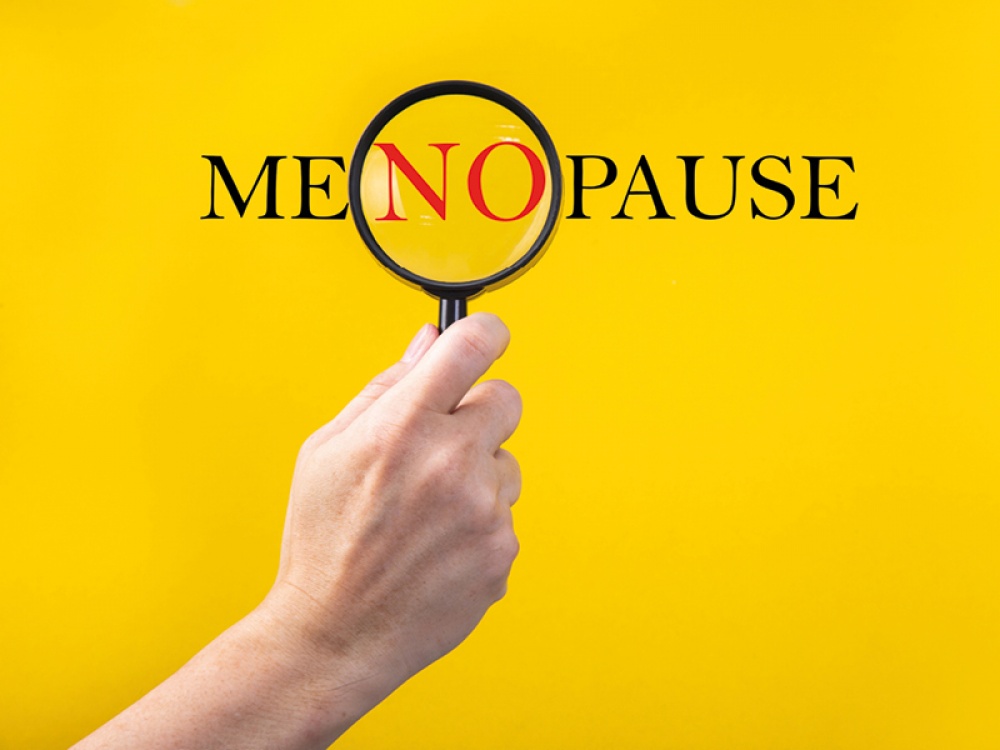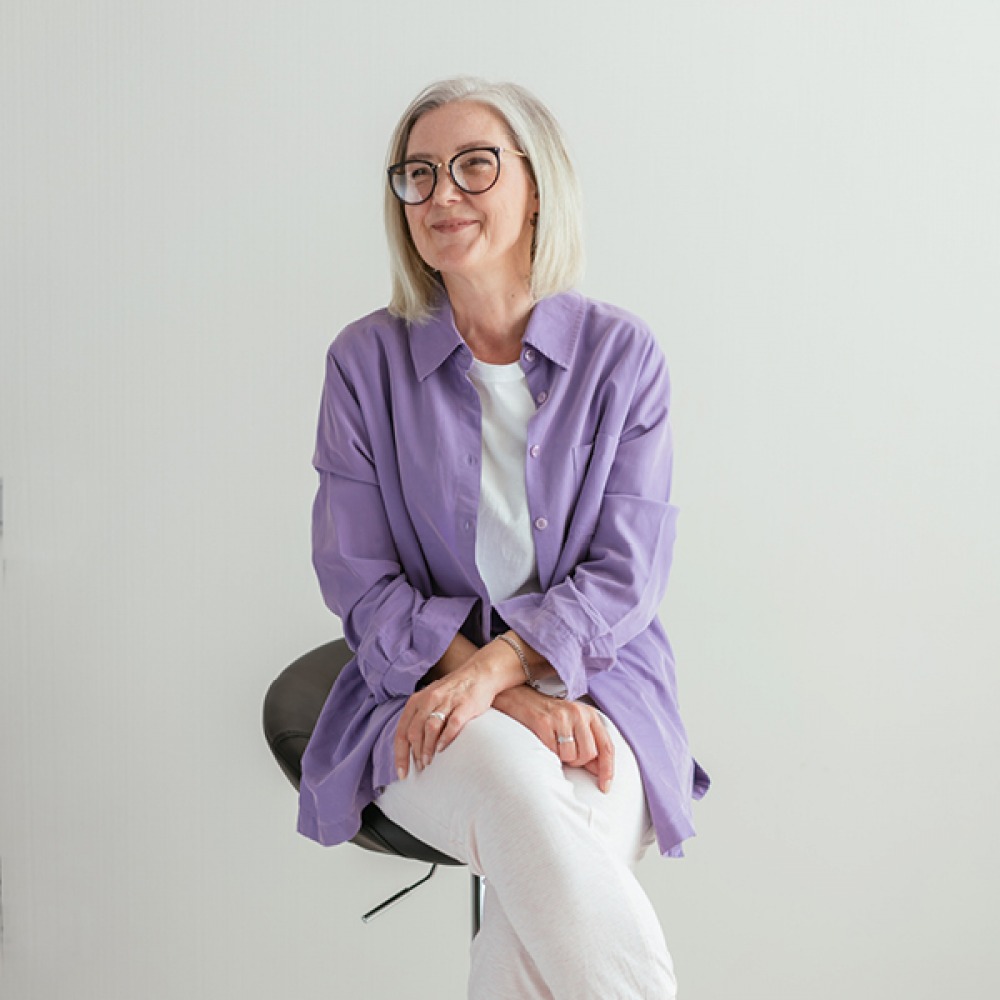Why Menopause Awareness Can Create Problems for Women

Thankfully more and more experts and celebrities are speaking out and helping to raise awareness of menopausal symptoms which can blight so many women’s lives. But that in itself has created its own problems
I say until recently, as thankfully more and more experts, and celebrities, are speaking out and insisting on being heard. Often inspired by their own experiences, they are determined that no other woman need ever stumble unknowingly into this potentially challenging time of life. Which is just great. Isn’t it? Well, yes of course it is. And also, no, not always. We have gone from being ignored and overlooked, and expected to just get on with it, to becoming prey. We have been recognised as a huge demographic, with money to spend, which is quite frankly desperate to find solutions.
While it’s fantastic that perimenopause, and menopause, is no longer seen as a taboo subject, we are now facing information overload and quite frankly exploitation. You need only head down to your local shops to see the word MENOPAUSE slapped on a myriad of products, usually with a price increase, with no real explanation of how said product will actually help you. Stick on the telly and enjoy a documentary that appears to be telling you that you need simply ask your doctor for HRT and you will immediately feel like yourself again. Hurrah! Scroll through social media and be bombarded with unusually fit looking 50-year-olds extolling the virtues of fasting, anti-inflammatory diets, cold water swimming and some dubious-looking smoothies. Overwhelmed yet?
Read More: Yorkshire Entrepreneur on the Symptoms and Impact of Menopause and How She is Helping Women

So, who can we trust? How are we supposed to navigate our way through this information overload? I would suggest you might start by trusting yourself. If you think something sounds too good to be true, it’s too good to be true. If something just isn’t for you, it isn’t for you – regardless of the fact it worked wonders for Edna or Elspeth. If you feel something does work for you, it does work for you – regardless of the fact it didn’t work for Marjorie or Mary.
Hormone replacement therapy (HRT) may be the right path for you; you may choose a natural approach; you may elect to follow both paths. You may breeze through with very few symptoms, if any. It’s about you, not anyone else. You are not alone in this, but you don’t need to be pushed in a direction that isn’t right for you.
HRT can help some women, but it is not for everyone. The key is to get the balance right, working alongside your GP, starting low and slowly building up the dose. After six weeks, see how you are feeling and whether you need to increase the dose – it can take between six and eight weeks to get the peak benefit from HRT. For many, taking HRT is life changing. Many women feel it truly gives them back their lives. Others struggle to get the balance right and can initially feel that HRT is making them worse – an increase in headaches, joint pain and breast tenderness for example. In perimenopause, your body has been dealing with fluctuating levels of oestrogen, therefore introducing HRT - in effect replacing that oestrogen - can lead to side effects.
Many women struggle, and some ultimately fail, to get the balance right. This is frustrating enough without being further compounded by voices around us – be they friends, family, experts or celebrities – insisting that HRT is the only answer and that we should all be on it or face dementia, heart disease and osteoporosis. Um, have a word with yourselves, that’s just not true and scaring us all may turn out to be far more damaging than staying silent. Just saying!
Read More: Why This Entrepreneur is on a Mission to Help Menopausal Women Beat Night Sweats
Alternatively, you may choose a natural approach. Such an approach need not stand alone, as it can work in harmony with HRT. Imagine you were preparing to run a marathon, you wouldn’t simply buy the best trainers available on the market – you would also look at your diet, your fitness levels, your stress levels, the amount of sleep you were getting and so on. As oestrogen starts to wane, we very much need to make important changes to the ways we look after ourselves. Diet, exercise and self-care really are key.
When it comes to diet, many women will notice a weight increase in midlife. This is because as we head towards menopause, we become more insulin resistant – we produce more insulin in order to control our blood sugar. Insulin controls your blood sugar by, yes you guessed it, putting it down as fat, especially around your middle. Therefore carbs, especially refined carbs, are not a great option in perimenopause. This is why you will see low carb, anti-inflammatory or Mediterranean diets (oily fish, fruit, fresh veg) so often recommended and why it makes sense to cut down on your alcohol and processed sugar intake. Sorry…
This is also why you know in your heart that any company trying to sell you a supplement to rid you of what I have alarmingly seen referred to as ‘menopause apron’ or ‘meno-belly’, or even claiming to ‘rebalance your hormones’, is offering the impossible. Again, I repeat, if it seems too good to be true, it is too good to be true.
In terms of exercise, we need to look to new ways to protect our muscles, joints and bones. Pilates and yoga are both low impact forms of exercise which strengthen our cores, improve posture, balance, joint mobility and muscle strength. They also relive stress and tension. Strength/resistance training also helps to build bone and strengthen muscle. You don’t need to feel it’s all impossible, that you don’t have the time or the energy, or the lifestyle of a midlife influencer, to get a six pack in your sixties – you don’t need one. Just add a little more exercise into your week, in a way that works for you.
Cold water swimming will reduce levels of inflammation in your body and boost your immune system but if the thought fills you with dread, then don’t bother. Maybe just turn the shower to cold for the last 30 seconds, or if you’ve just shouted at me – maybe don’t!
Perimenopause can feel like a second puberty, a second spring, a second act. As oestrogen, also known as the caretaking and nurturing hormone, starts to ebb away we can start to take care of ourselves in a way we previously reserved for everyone else in our lives.
If it all gets overwhelming, just pause…
You know who you can trust… you.







